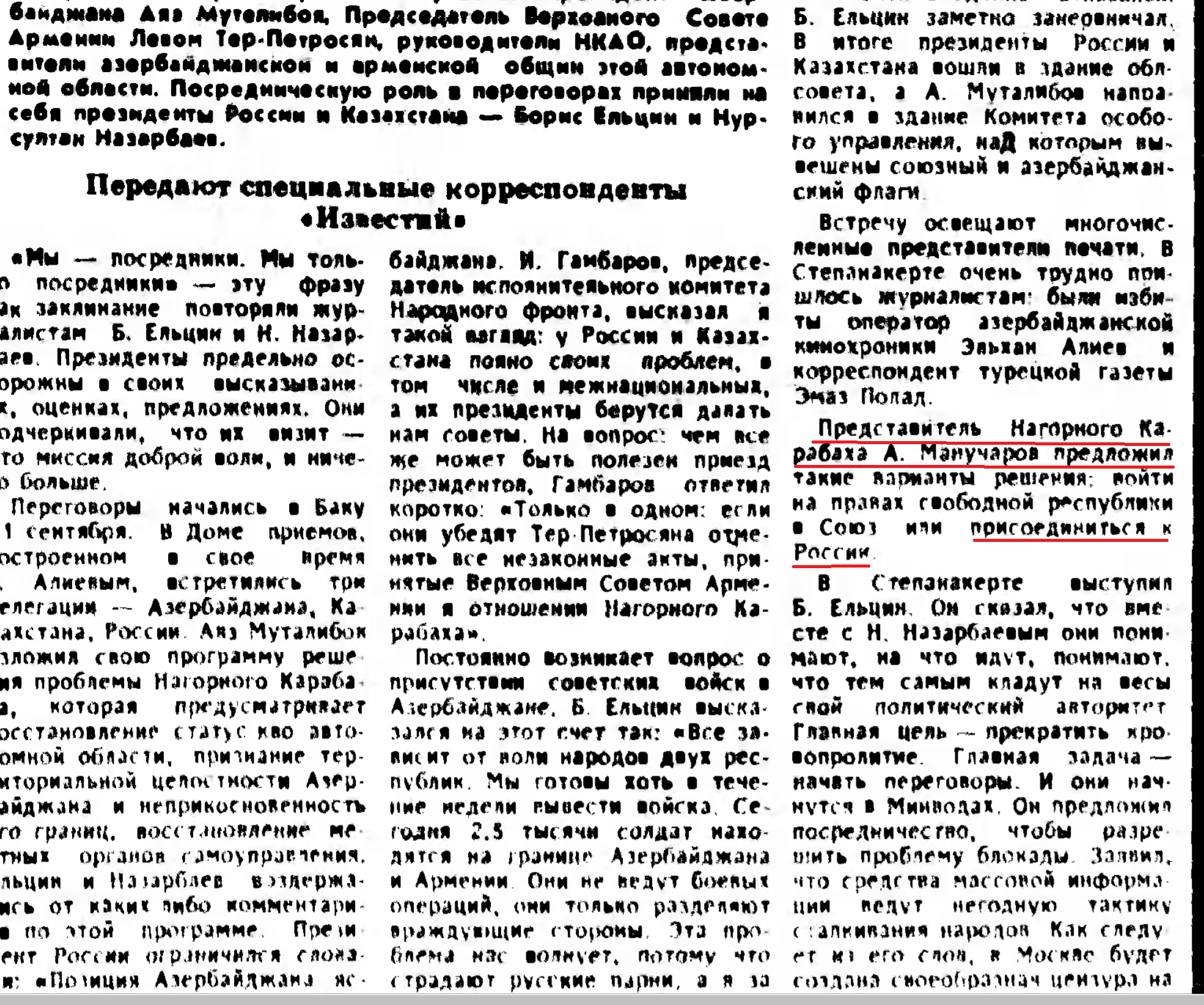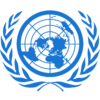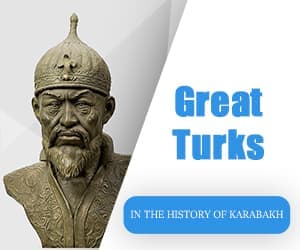The idea of annexing Nagorno-Karabakh to Russia was put forward by the representatives of Armenian nationalists in September 1991. It was the first time when leadership of the Russian Federation tried its hand as a mediator in the Karabakh conflict. In November 2020, with the introduction of Russian peacekeepers, the idea of ”Russian Karabakh” came back to life in a somewhat veiled and transformed shape. Now it is expressed not so much by the Armenians as by the Russian politicians, experts and through news publications.
“The representative of Nagorno-Karabakh A. Manucharov offered… to join Russia,” the Moscow newspaper “Izvestia” reported on September 23, 1991.
 Born in Stepanakert (Khankendi), Arkady Manucharov was one of the main leaders of the Armenian nationalist movement in Nagorno-Karabakh in the late 1980s and early 1990s. He voiced the idea of joining Russia after the first four years of the Karabakh crisis, which began in February 1988 with mass demonstrations by the Armenians of Stepanakert, who demanded to secede from the Azerbaijan Soviet Republic and join Armenia. In 1990-1991 this political crisis transformed into a growing military conflict.
Born in Stepanakert (Khankendi), Arkady Manucharov was one of the main leaders of the Armenian nationalist movement in Nagorno-Karabakh in the late 1980s and early 1990s. He voiced the idea of joining Russia after the first four years of the Karabakh crisis, which began in February 1988 with mass demonstrations by the Armenians of Stepanakert, who demanded to secede from the Azerbaijan Soviet Republic and join Armenia. In 1990-1991 this political crisis transformed into a growing military conflict.
On August 17, 1991, amid the already inevitable collapse of the Soviet Union, the presidents of Russia and Kazakhstan agreed to make efforts to resolve the Karabakh conflict through negotiations. For the first time in history modern Russia made an attempt to act as a mediator in the confrontation between Armenians and Azerbaijanis. On September 21, Boris Yeltsin and Nursultan Nazarbayev arrived in Baku, from there they went to Stepanakert, and on the 22 nd they came to Yerevan. The next day, negotiations with the participation of Azerbaijan, Armenia (including representatives of the Armenian nationalists from Nagorno-Karabakh), Russia and Kazakhstan continued in Zheleznovodsk – a southern city in Russia. The final joint communique was published late in the evening of September 23rd.
“We hope the communiqué will be implemented. And the negotiation process will begin on an ongoing basis”, – President Yeltsin said. “We hope that the document will become operational,” Nazarbayev added.
The above-mentioned Arkady Manucharov also took part in those negotiations, although the self-proclaimed a year earlier Nagorno-Karabakh Republic was not a recognized participant in the meetings on September 22-23, 1991. At the same time, Manucharov voiced the idea of joining Nagorno-Karabakh to Russia. It was an alternative option – in case it would not be possible to either join Armenia or become formally a “free republic” within the collapsing Soviet Union.
Another member of the “Karabakh delegation” took part in the meetings in Stepanakert with the presidents of Russia and Kazakhstan. It was the Russian publicist Andrei Nuikin, who in the same year became a defendant in a criminal case in Moscow for “inciting ethnic hatred” due to articlesб supporting Armenian nationalism.
It is significant that in the “Karabakh” (!) delegation, which claimed to represent the entire Nagorno-Karabakh, as well as in other “representative bodies” of the Armenian nationalists of this region, there was no place for a spokesman for the local Azerbaijanis. And this despite the fact that back in 1989 they accounted for more than 40,000 of the 189,000 population of the Autonomous Region. But the “Karabakh delegation” has found a seat for Andrei Nuikin, who was born in Siberia.
On October 18, 1991, in his article in “Izvestia” newspaper Nuikin has presented the position of the leaders of the Armenian nationalist movement of Nagorno-Karabakh in the context of the negotiations. Nuikin noted: “The agreement of 1813 on the voluntary entry of Nagorno-Karabakh into the Russian state was concluded not for a certain period, but for eternal times…”. As it followed from this statement, the Armenian nationalists were even ready to recognize the Russian rule over themselves – just to tear Nagorno-Karabakh away from Azerbaijan.
The expression of the same idea by two members of the “Karabakh delegation” testifies to the fact that in 1991 the political leaders of Armenian nationalists seriously considered the option of “Russian Karabakh” fearing the unpredictable consequences of a full-scale military conflict.
Then, in the early 1990s, the peacekeeping mission of Russia and Kazakhstan did not prevent a full-scale war. The Armenians emerged victorious. Azerbaijanis were expelled not only from Nagorno-Karabakh, but also from six adjacent regions, which are generally recognized as an integral part of Azerbaijan. Finally, in 2020, the Azerbaijani army liberated the occupied territories. Now Armenia has already suffered a crushing defeat. Russia again acted as an arbiter. And again, almost 30 years later, the idea of “Russian Karabakh” came to life.
As in the previous time, it is being voiced unofficially for the time being, but now not only and not so much by representatives of the Armenian nationalists of Nagorno-Karabakh as by Russian politicians, experts and news publications:
- 11.11.20 – Chairman of the “Spravedlivaya Rossiya” party Sergei Mironov (“Nezavisimaya Gazeta”): “The presence of Russian peacekeepers in Nagorno-Karabakh” has no real alternative “.
- 11.11.20 – Konstantin Malofeev (“Nezavisimaya Gazeta?), Chairman of the Society for the Development of Russian Historical Enlightenment “Dvyglavi Orel (Two-Headed Eagle)”: “When those who dream of standing under its protection turn to the imperial state, they make a request. And then the empire decides. The policy of the imperial state has been implemented right now. “
- 15.11.20 – political scientist Arman Boshyan (Miasin.ru): “Russia will keep Artsakh under its control and will not give it to anyone. In the nearest future the phrase “Artzakh is Russia” will become a reality. And what is most important, judging from my talks with the people of Artzakh, most of them will not object that. Most likely, the citizenship of the Russian Federation will be distributed to the Armenians of Artsakh, as it was in Ossetia and Abkhazia”.
- 16.11.20 – political scientist Sergei Stankevich (Bloknot.ru): “The territory of Nagorno-Karabakh after the withdrawal of Armenian armed detachments will remain in the care of the Russian peacekeeping contingent… In my opinion, there is only one way to remove the threat: to allocate the Karabakh enclave into a special self-governing territory and lease it to the Russian Federation for a period , let’s say, for 50 years… In this case, everything will fall into place. It will be clear why and on what basis Russia protects the perimeter of the Karabakh enclave and the land corridor leading to Armenia”.
- 17.11.20 – one of the leaders of the opposition in Armenia Andrias Ghukasyan (“Novaya Gazeta”): The first war in Karabakh ended with the defeat of Azerbaijan. The second war ended with Russian troops entering Nagorno-Karabakh. In all cases, Russia becomes the beneficiary”.
- 22.11.20 – “Versia” newspaper: “It would seem that half of Armenia blames Moscow that Russia did not win Artsakh for Yerevan. At the same time, the inhabitants of Artsakh themselves, having learned about the Russian peacekeepers, began to massively return to their abandoned houses. And somewhere, somewhere, but in Stepanakert, it seems that the majority finally understood who they all hope for. Now, for sure, not to Yerevan, which refused to recognize Artsakh, and there, even more so, in military protection. Do you understand what’s going on? Russia is unable to lure the former Soviet republics into alliances, but it easily finds a common language with their fragments! “You have lost Armenia!” – Armenian nationalists threateningly blame Moscow. Armenia – maybe. But it’s definitely not Karabakh!”
- 22.11.20 – political scientist Ruslan Ostashko (“Versiya” newspaper): “Enough of these “ancient unique cultures”, whose representatives are only able to slaughter neighbors.
- 26.11.20 – Pravda.ru: “… Peacekeepers sent from Russia will be in this territory for more than five years.”




